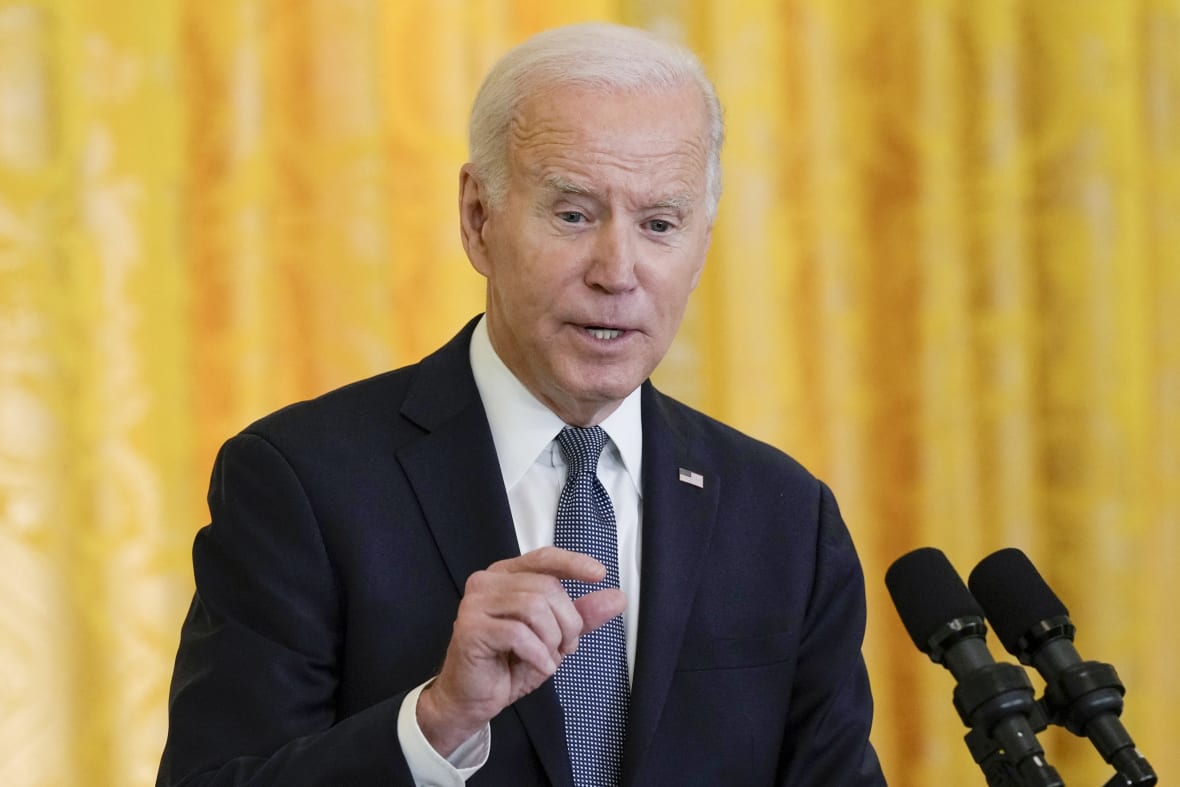WASHINGTON (AP) — President Joe Biden said Thursday that Democrats should give up “restrictive” caucuses and prioritize diversity at the start of their presidential primary calendar — dealing a major blow to Iowa’s decadeslong status as the state that leads off the process.
In a letter to the rule-making arm of the Democratic National Committee, Biden did not mention specific states he’d like to see go first. But he has told Democrats he wants South Carolina moved to the first position, according to three people familiar with his recommendation who spoke on condition of anonymity to discuss private conversations.

The president’s direction comes as the DNC rules committee gathers in Washington on Friday to vote on shaking up the presidential primary calendar starting in 2024. Members now expect to approve new rules putting South Carolina first, followed by New Hampshire and Nevada on the same day a week later.
Georgia and Michigan would move into the top five as new early states, and each would hold primaries in subsequent weeks, committee members say. The two battlegrounds were critical to Biden’s 2020 victory over then-President Donald Trump, who had won both states in his 2016 White House campaign.
Much of the rest of the country would vote as part of Super Tuesday soon afterward.
Such changes are set to come after years of calls from many top Democrats for the voting calendar to better reflect the party’s deeply diverse base than mostly white Iowa, which holds the country’s first caucus, and New Hampshire, which holds the first primary. The new calendar would still have to be approved by the full DNC in a vote likely to come early next year, but the DNC will almost certainly heed the rule-making panel’s recommendations.
The proposed order of the early states was first reported by The Washington Post.
“For decades, Black voters in particular have been the backbone of the Democratic Party but have been pushed to the back of the early primary process,” Biden wrote in a letter on personal stationery that did not carry the White House seal. “We rely on these voters in elections but have not recognized their importance in our nominating calendar. It is time to stop taking these voters for granted, and time to give them a louder and earlier voice in the process.”
He said caucuses were “restrictive and anti-worker” because they require voters “to spend significant amounts of time” on one night gathering to choose candidates in person, “disadvantaging hourly workers and anyone who does not have the flexibility to go to a set location at a set time.”
The changes could be implemented as soon as 2024 but would be rendered largely meaningless until 2028 if Biden opts to seek a second term. The president has said for months that he intends to run again, and White House aides and Biden allies have begun staffing and structural discussions for his likely 2024 bid while refraining from overt steps while the president weighs a final decision.
Such a shakeup would nonetheless be seismic given that Iowa’s caucus has led off the Democratic voting calendar since 1976. Still, it would come two years after a series of technical glitches so marred party results that they prevented The Associated Press from declaring a 2020 Iowa Democratic caucus winner.
On the current Democratic calendar, Iowa has been followed by New Hampshire, which has held the nation’s first primary since 1920. Nevada and South Carolina have gone next since the 2008 presidential election, when Democrats last did a major primary calendar overhaul.
The Republican National Committee, meanwhile, has already decided to keep Iowa’s caucus as the first contest in its 2024 presidential calendar, ensuring that GOP White House hopefuls — which include Trump — will continue campaigning there frequently.
South Carolina holds special relevance to Biden. His victory in the state’s first-in-the-South primary in 2020 kickstarted his presidential campaign after poor finishes in Iowa and New Hampshire on his way to winning the Democratic nomination.
Dick Harpootlian, a longtime Biden ally, fundraiser and former South Carolina Democratic Party chair, said Thursday that he and Biden discussed South Carolina’s possible advancement the night of Biden’s 2020 primary victory there. Harpootlian said he’d impressed upon Biden that the state was a better place than Iowa to hold an even earlier presidential voting contest — to which Harpootlian said Biden was receptive.
“I think he agreed that this was a much more dynamic process,” Harpootlian said. “Iowa was just a nightmare.”
The DNC rules committee has been discussing reordering the early calendar for months, touching off a fierce battle among many states to go first. In a joint statement Thursday night, Michigan Democratic Party Chair Lavora Barnes and U.S. Rep. Debbie Dingell said, “We have always said that any road to the White House goes through the heartland and President Biden understands that.”
But Biden’s wishes sparked anger in New Hampshire, where state law calls for holding the nation’s first primary and where officials had for months threatened to simply move up their election regardless of what new rules the DNC approves. Other states have previously tried to violate party rules and jump closer to the front, only to be threatened with having their delegates not count toward their chosen candidate clinching the party’s nomination.
New Hampshire Democratic Sen. Jeanne Shaheen issued a statement blasting “the White House’s short-sighted decision,” while fellow New Hampshire Democratic Sen. Maggie Hassan said, “I strongly oppose the President’s deeply misguided proposal.
“But make no mistake,” Hassan said in a statement. “New Hampshire’s law is clear and our primary will continue to be first in the nation.”
TheGrio is FREE on your TV via Apple TV, Amazon Fire, Roku, and Android TV. Please download theGrio mobile apps today!
